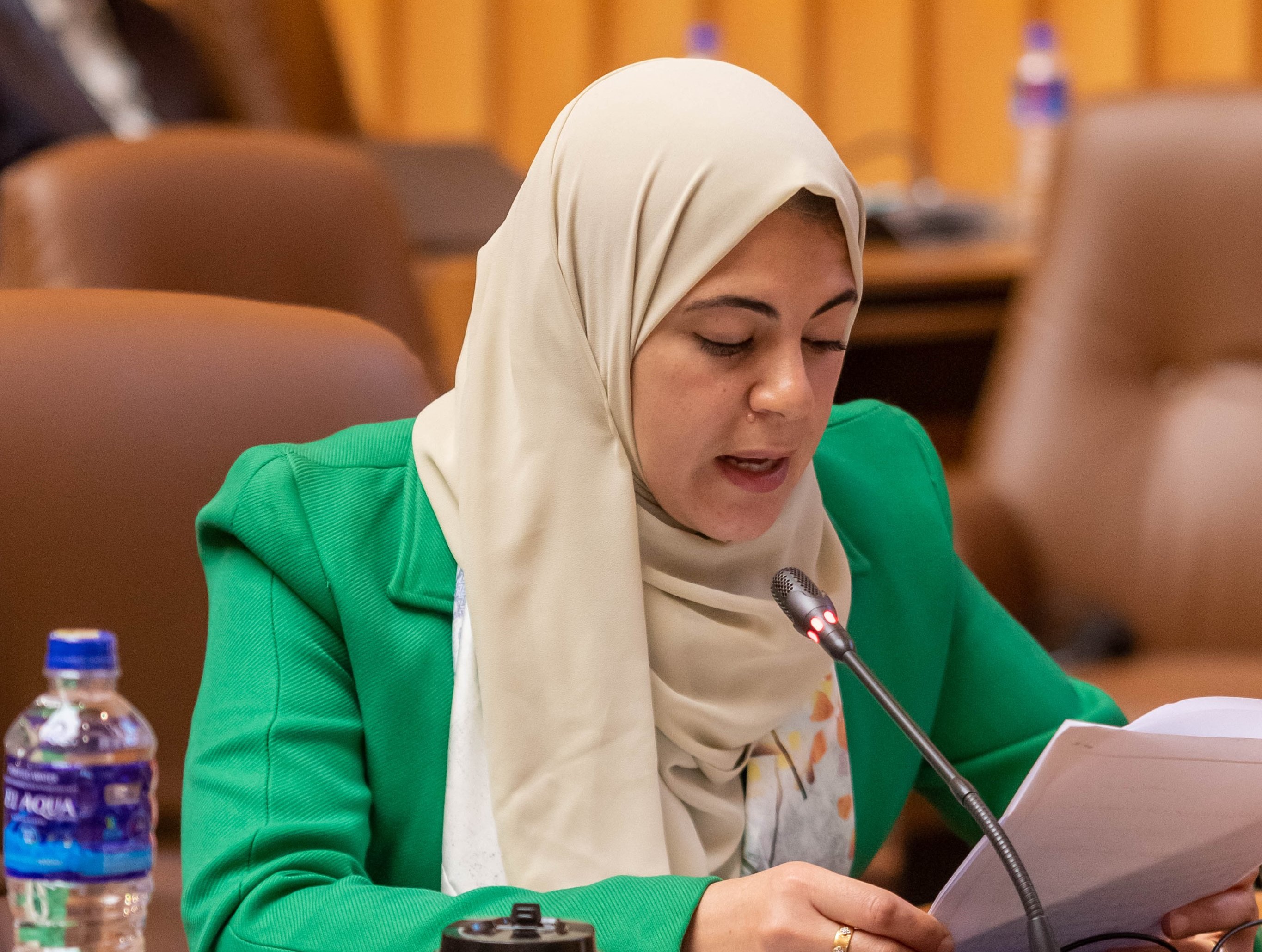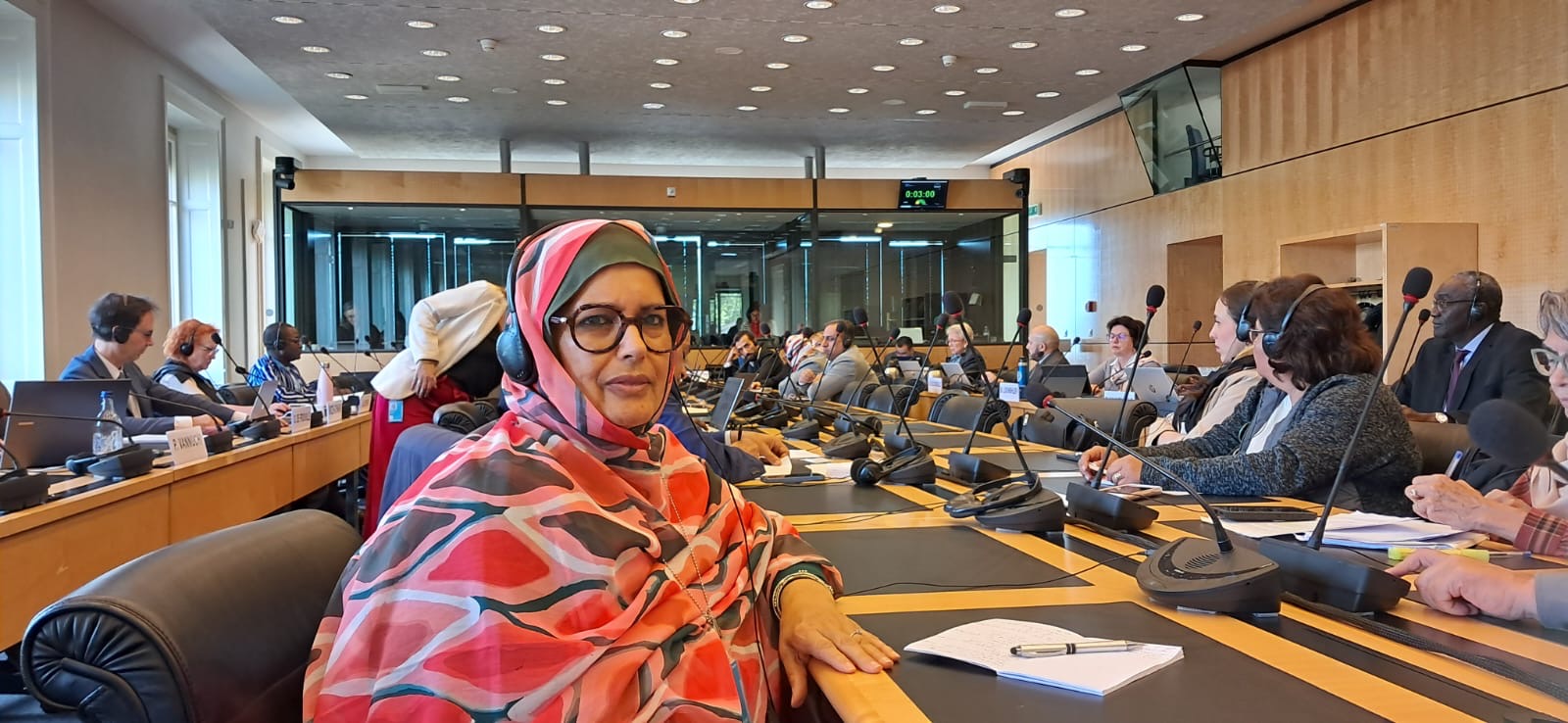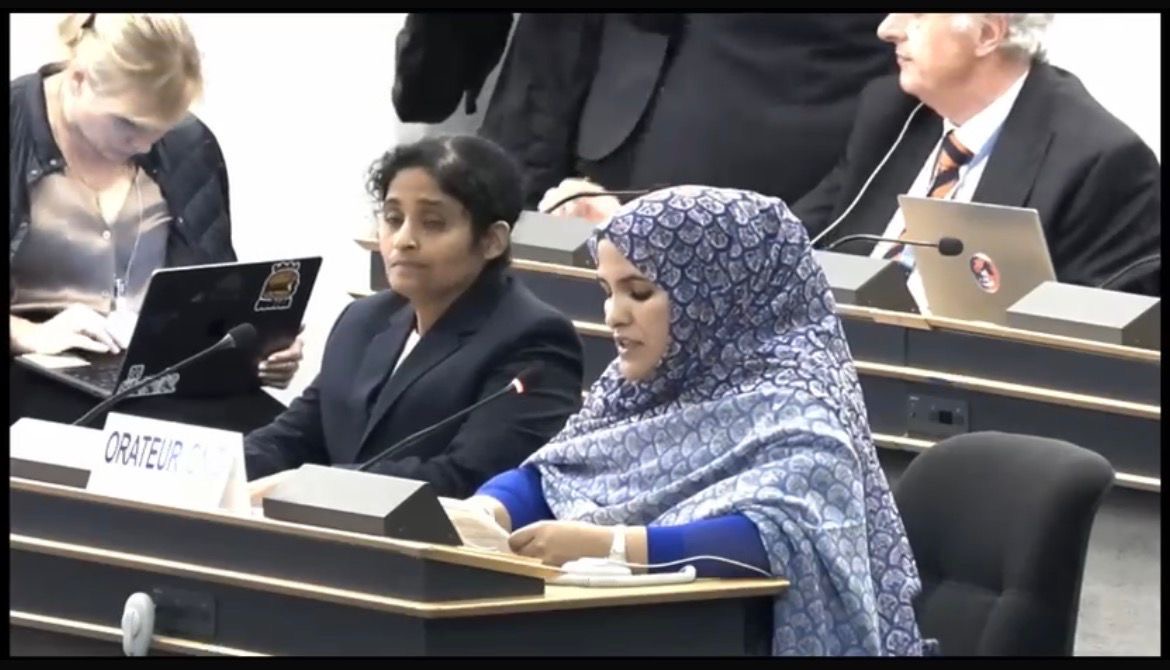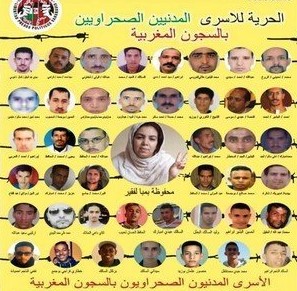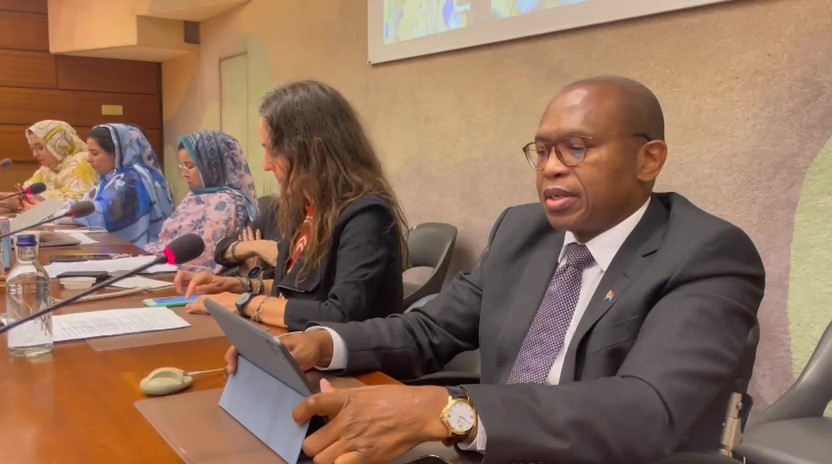
Geneva (Switzerland), July 3, 2025 (SPS) - The Permanent Representative of South Africa to the United Nations in Geneva, H.E. Mr. Mxolisi Nkosi, expressed solidarity with Sahrawi women who are subjected to oppression and siege within the occupied cities of Western Sahara.
During his intervention on Monday at the International Symposium in Geneva on "The Resistance of Sahrawi Women," held on the sidelines of the 59th session of the UN Human Rights Council, the South African representative stated that the voices of Sahrawi women will not be silenced. He considered their resilience as an exposure of the official narrative that attempts to whitewash the reality of the Moroccan occupation.
The South African representative also emphasized that the international community must work collectively to end any selectivity or double standards and ensure the decolonization of Western Sahara.
The full text of the intervention by the Permanent Representative of South Africa to the United Nations in Geneva, H.E. Mr. Mxolisi Nkosi, follows:
“Moderator, Excellencies, ladies and gentlemen.
On behalf of the Permanent Mission of South Africa, allow me to thank you all for coming to this very important side event. I similarly wish to pay tribute to the distinguished panelists for sharing their insights and experiences, and more especially the heart-wrenching testimonies that we have listened to from Sahrawi women who are on the front lines, who are at the receiving end of the repression by the security forces of Morocco.
Indeed, their voices will never be silenced. The courage of Sahrawi women comes squarely to the fore in the illuminating report, resilience in resistance, highlighted by panelists. The report documents how Sahrawi women endure widespread systemic human rights violations for simply daring to resist injustice. These violations form part of a deliberate misogynistic strategy, what the report terms "will of reprisals" against Sahrawi women because of their gender and status in society in order to instill a climate of fear. This is because through their resistance, Sahrawi women effectively expose the carefully crafted narrative which seeks to whitewash the brutality of foreign occupation.
This side event, therefore, is especially timely, given that the June session of the Human Rights Council is commonly referred to as the gender session. As such, it is a pity that many states who profess to be advocates of human rights and gender champions are not here with us today. Their absence is conspicuous. It speaks volumes, and it leaves an impression, namely that Sahrawi women, and indeed all women under foreign occupation, are somehow less than human.
As a country that prizes gender equality, for South Africa, the violence and discrimination being perpetrated against Sahrawi women can never be countenanced. Indeed, we are a nation born of women human rights defenders who fought valiantly against apartheid to secure equity for women, not only in our country but everywhere else in the world. South Africa, therefore, is pleased to be associated with this event. This is more so the case as the struggle of the Sahrawi does not exist in a vacuum, but forms part of a broader struggle for the self-determination of Western Sahara.
Indeed, as far back as 2006, the Office of the High Commissioner for Human Rights expressed serious concern about the human rights situation in Western Sahara and linked the violations taking place directly to the denial of the right to self-determination. This has been confirmed over the years, including most recently in a statement published by eight UN Special Rapporteurs, which denounced Morocco's ongoing campaign of repression, racial discrimination, and violence against the Sahrawi. Yet, the dire human rights situation in Western Sahara continues to be hidden in the shadows, away from the Human Rights Council's view, as some states have chosen expediency over principle, sacrificing the rights of the Sahrawi people at the altar of geopolitical interests.
For the ninth consecutive year, the OHCHR has been denied access to Western Sahara. This, despite repeated official requests from the High Commissioner and calls by the Security Council for enhanced cooperation, including through such visits. While the demand for international monitoring is critical, it is, however, insufficient in and of itself.
Indeed, this human tragedy will continue unless and until we bring a decisive end to the ongoing unlawful occupation of Western Sahara. In today's turbulent world, we can no longer afford a situation where the law only serves to promote the interests of the powerful. This, together with the unilateral actions taken by some, only serve to weaken the law and undermine the credibility of those institutions entrusted with its implementation, benefiting no one. As the international community, we must, therefore, work collectively to end any selectivity and double standards and ensure that the Sahrawi are finally able to determine their own destiny, as the report correctly asserts. Collective action is the only antidote to unilateral punishment.
I thank you.”

